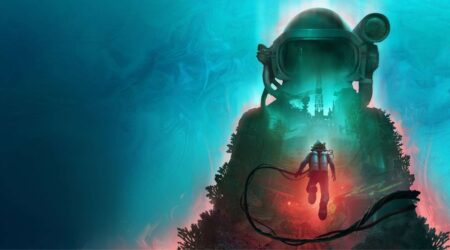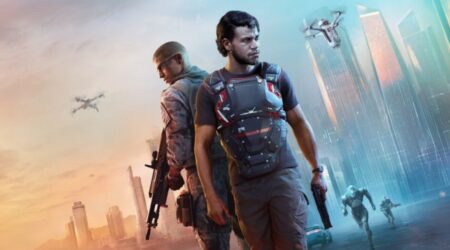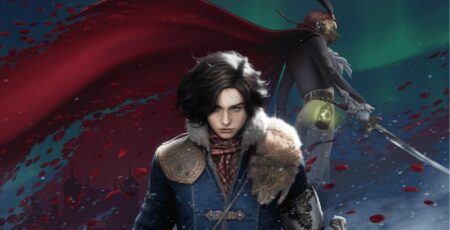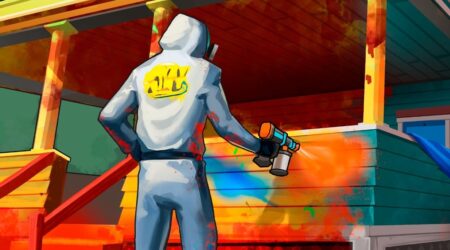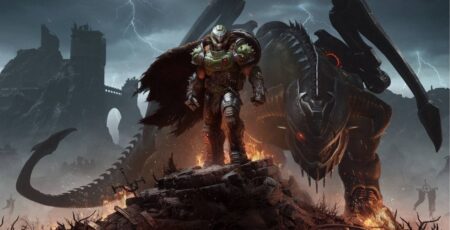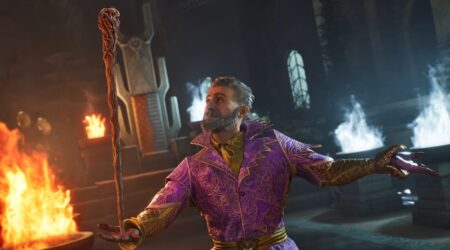
Vibrant pinks and purples, a Kosmonaut dog, and a killer 80s soundtrack have done some heavy lifting to build interest in Marvel’s Guardians of the Galaxy. That said, the game was well worth the wait. Developed by Eidos-Montréal and published by Square Enix, this game brings vibrant cosmic sci-fi, found family, mommy issues, and more in all the Guardians glory you could ask for as a fan. From start to credits role, it’s clear that the team worked closely with Marvel to execute a single-player action-adventure game that aims to hold true to who the Guardians are as characters while innovating story and design along the way.
For your part, you play as Star-Lord, well Peter Quill, the self-proclaimed leader of the Guardians. Unlike the one most people are familiar with, this Peter is a Galactic War hero who fought along with the Nova Corp against the Chitauri. Sure he was taken to space as a teen, but everything after is a bit different than the lore you know from the Marvel Cinematic Universe (MCU). Here, the Guardians have assembled and are pulling off heists and jobs for money and recognition. When a job in the Quarantine Zone goes left and the team finds themselves owing a hefty fine to the NovaCorp, you and your group have to try and recoup your losses, all while a mysterious danger lurks within the Nova Corp itself. With over 40 hours of gameplay filled with combat, exploration (which includes some fantastic exploration elements pushed by loot), and of course, relationship building through character conversations, there is a lot to hold onto in Marvel’s Guardians of the Galaxy.
At E3 this year, when Square Enix finally shared gameplay for Guardians of the Galaxy, it would be lying to say that it wasn’t met with ire from players. I mean, why wouldn’t a team of five characters be co-op? After playing, the answer is simple: character development. This is a story told from one perspective, and one told through relationships with those around you. Now, while big cutscenes give that juicy character development that we all crave, the beauty of this game comes in the small moments, the ones you can’t get if you’re in a co-op party. The reason that the Guardians work is because of the dynamic they have with each other characters and teammates in all of their disfunction. Through dialogue spoken while on a mission, do other things, or moments on your ship or in a bar on Knowhere, how you react in these small moments of connection matter, just like when you choose a dialogue choice in the main story. It’s because of these choices that Marvel’s Guardians of the Galaxy is a game to play passively.
That said, with a strong narrative and constant choices appearing, the game doesn’t lose its pacing. Unlike a game like Life is Strange, Marvel’s Guardians of the Galaxy wants you to engage but also gives you the option not to. Unfortunately, that also means that if you miss that timer because you looked at your phone or were stuck trying to platform or distracted by one of the many stellar zones’ art, the ship sails without you. For me, this works, as the game’s most important choices don’t allow you to offer silence by way of the “…” choice, nor do they work on a timer, allowing you enough time to think of the impact of your decision. That said, as a player who enjoys speeding through elements, the ability to move at my own pace is something to be applauded.
Of course, though, the pacing isn’t perfect, and that’s due in large part to quick-time events (QTE). While the game’s QTE are less than, say, Tomb Raider, they occur sporadically and surprisingly what feels like out of nowhere. Whether it’s having to press A when you narrowly miss a ledge or you’re running down a stretch of a ship to safety, the QTE ultimately seem out of place within the game. Honestly, they add little more than a headache when not intuitive (often when one of Peter’s abilities are manifesting for the first time) or when you just can’t time things correctly. Though the menu is equipped with fairly extensive options to adjust QTE, when playing the game in a default state, you have to question why include QTE at all?
Where the quick button presses feel like a chore in the QTE, executing combos does not. Combat in Marvel’s Guardians of the Galaxy is dynamic in more ways than one. At one level, you have an exceptional range of motion with Peter’s jet boots that allow you to roll with style. Add in gliding and immediate double jumps, and combat never goes stale. Additionally, as with the character dialogue, combat takes engagement. With many fights consisting of multiple waves of mobs, learning how to use your team’s powers together in the most effective ways becomes a challenge that is well worth undertaking. Even when on the easiest difficulty, large mob fights can easily be lost when you focus too much on just shooting, and this, of course, only increases as you up the difficulty.
The characters of Marvel’s Guardians of the Galaxy are its shining stars. This isn’t just because of their stories and interactions but also because of how you learn to work with them throughout the game. As you unlock different moves, you get a sense of which Guardian works best for which situation and who works better together. For starters, Rocket is crowd control and AOE, Groot is crowd-control in the truest support sense, Drax is best used to stun enemies and expose vulnerabilities, and Gamora is perfect as your primary damage used for targets away from the crowd and ultimately perfect for your pure damage attacks. As you learn to use them together, you get a rhythm as to when to call them in. This all pushes you to understand your team both in mechanics and in the story without feeling clunky. Plus, each character helps you navigate zone obstacles in their own ways, whether it’s lifting heavy things, cutting through vines, crawling in a vent, or making a bridge.
That said, the only drawback in needing to essentially manage five characters at one time is the ability to switch targets quickly. While switching targets and some of the animations attached to finishers are issues in the overall combat, the reward of executing a combo together with your team is unmatched. Do I have to hit “Y + B” quickly? Yes. Does it break the flow? No, it enhances it. Additionally, the game’s leveling system for abilities and limited crafting model work perfectly to keep pushing you to new combat elements without becoming overwhelming or too much like a true RPG.
But the most fun when it comes to button pressing has to be the huddles. Yes, in the heat of battle, you can, and you should call a huddle. Once executed, you’re put into conversation with your team, and you have to choose how to motivate them to win. Now while this moment adds some levity and kicks on a just absolute banger of an 80s track to fight to, it also serves real benefits to moments when the mobs become too much, or you need to just burn through a boss. But this pep talk has to match what your team members are putting down. Match the tone correctly, and you get a big buff for the duration, get it wrong, and you’re the only one who gets a nice little boost. That said, even if you’re not great at picking tone or you have hit something on accident, the biggest strength to calling a huddle is that it immediately picks up all downed teammates, which can be the best save you need.

So, with Marvel’s Guardians of the Galaxy, the story works, and the combat works, we also have to talk about the character designs themselves. While you can find hidden collectibles in the world that give you new skins for your characters that look like their MCU counterparts (I have not taken off the 2014 Gamora skin since I found it), the characters themselves look very different from what most fans already know. Like Square Enix‘s last venture in Marvel IP, the versions of the characters we see in this game are detached from their MCU counterparts.
That part is key to understanding and appreciating the world-building and character intricacies being brought to life in Marvel’s Guardians of the Galaxy. The characters and story in the game are closer to the comics than the films in terms of character backstories, connections, and even appearances. And for the villains, the comic beauty comes to life. To avoid spoilers, all I can say is for you to look up Marvel’s Monsters Unleashed series or Totally Awesome Hulk and then look at the damn perfect design for Lady Hellbender in this game. Just perfect.
Marvel’s Guardians of the Galaxy manages to thread the needle of faithfulness and innovation when it comes to storytelling, and that isn’t an easy feat to achieve. But that comes from a team that truly understood the characters and gave them connections to each other. But the shock of all is how well thought-out Rocket’s moments in the game are. Whether it’s him getting angry and losing his cool in dangerous situations or opening up to Peter about the abuse and trauma he experiences in his past, every bit of Rocket just works, and sometimes better than Peter’s own story. While Groot is Groot, and Drax and Gamora play a more supporting role insofar as character development beyond growing to trust each other despite Drax, well, murdering her dad, the relationship around Rocket and Peter is enough to carry the game easily — even with the juicy developments in Peter’s past that get revealed.
In addition to ill-timed QTE, the only other issue that Marvel’s Guardians of the Galaxy suffers from is animation. While, by and large, the game is gorgeous to look at, there are moments in the games’ calmest moments that just don’t work because of animation glitches or forced perspective that don’t adapt to character placement in the level. For example, Drax gazing out the Milano’s window at the stars will show you a teal Katathian with blades sticking through his back — this happened multiple times, and I wanted just to know if Drax was okay. Additionally, in some moments where you use a teammate to interact with the world, like moving an object or even building a bridge, you’re forced into a less than ideal camera perspective.
However, even with its faults that can easily be patched up, Marvel’s Guardians of the Galaxy is an absolute love letter to the property and one that any fan should be excited to play. Yes, the gameplay is excellent, but for this game, it’s all about the characters. It’s about small moments, big moments, and everything in between. With stellar humor and even more heart, Marvel’s Guardians of the Galaxy is easily one of the best games of the year.
Marvel’s Guardians of the Galaxy is coming to PS4, PS5, Xbox One, Xbox Series X|S, PC, and streaming via GeForce NOW on October 26, 2021.
Marvel's Guardians of the Galaxy
-
Rating - 9/109/10
TL;DR
Even with its faults that can easily be patched up, Marvel’s Guardians of the Galaxy is an absolute love letter to the property and one that any fan should be excited to play. Yes, the gameplay is excellent, but for this game, it’s all about the characters. It’s about small moments, big moments, and everything in between. With stellar humor and even more heart, Guardians of the Galaxy is easily one of the best games of the year.

